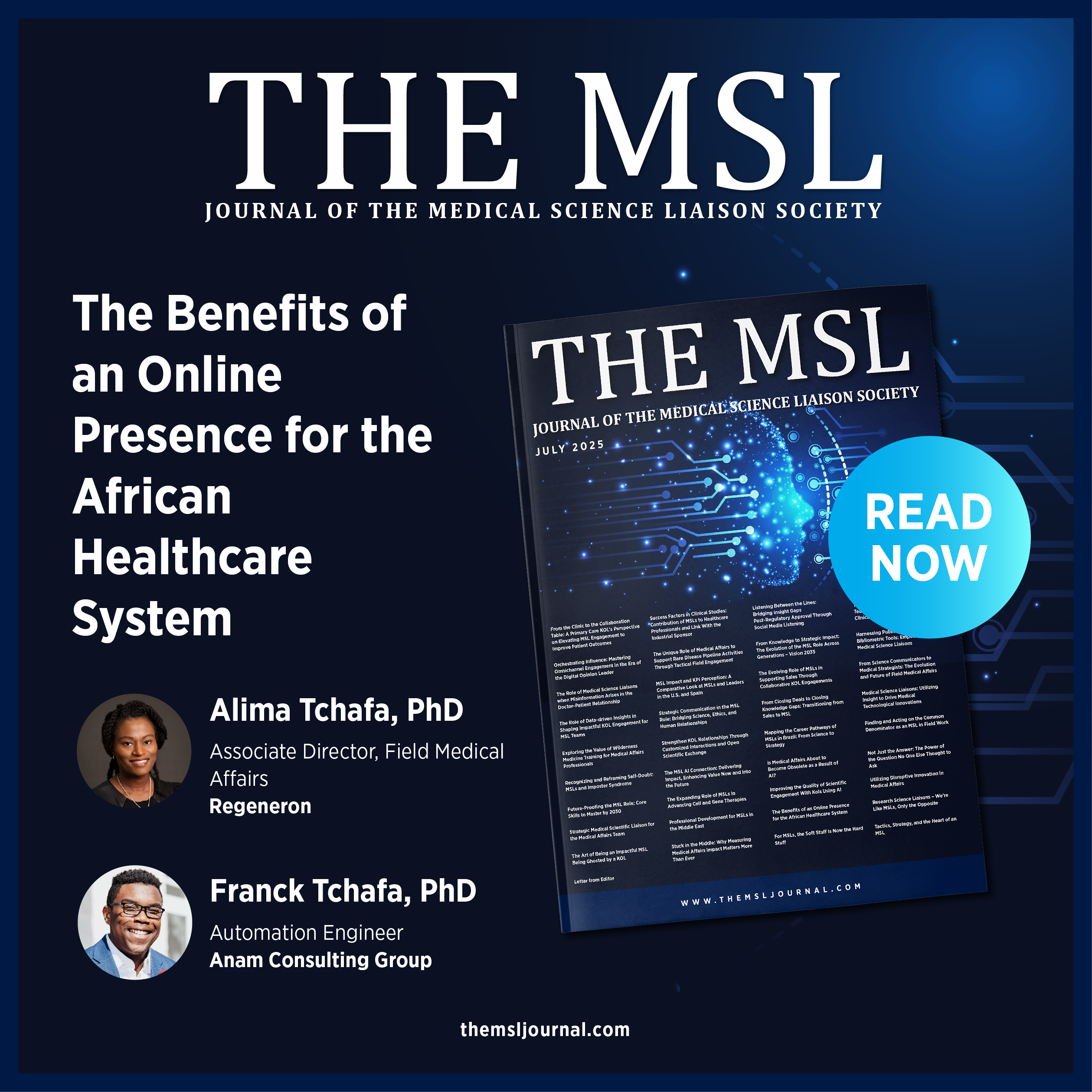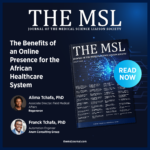African healthcare lags behind major healthcare systems generally due to its inadequate infrastructure, limited disease prevention strategies, and shortage of healthcare providers to serve a growing population. Over the last decade, several African countries have made strategic investments in their medical facilities, making significant strides in improving healthcare accessibility and services that match those seen in the United States and Europe. South Africa, Tunisia, Kenya, and Nigeria are currently recognized among the top countries in Africa with improved and accessible healthcare: they expanded access to primary health care services; are providing necessary services (i.e., maternity) free of charge or health insurance subsidies to the elderly and disabled; and have enough public and private hospitals across the country to cater to both urban and rural patients with several state-of-the-art facilities. (1) These changes are encouraging but rare across a continent of 54 countries, and the majority of the continent still faces systemic challenges with underdeveloped healthcare ecosystems.
To exacerbate the problem, healthcare facilities and providers active across the continent are still largely absent online. Many hospitals and clinics lack websites. And those that do often fail to keep them up to date with accurate information. Social media usage among African healthcare professionals remains minimal. At a maximum, some individuals have a Facebook page with outdated images that often include incorrect phone numbers, thereby limiting patient access to reliable health information. Meanwhile, internet penetration in Africa has grown significantly, with some countries reaching 85% penetration as of 2020. (2) We know that African patients and consumers are online through cellphones at rates similar to those seen in the West. Smartphones generated 75% of web traffic, with only 24% attributed to PC devices. (3) African patients use their smartphones to access health-related information, but unfortunately, they frequently struggle to find information on local providers or facilities. They currently rely on word of mouth, anecdotal reputations, and sometimes folktales to decide where to receive the care they need. Although more significant in sub-Saharan francophone countries like Cameroon, Gabon, and Chad, it is also an issue in countries with improved and accessible healthcare. For example, a 2018 survey of plastic surgeons in South Africa (the poster child for best in Africa) revealed that only 18% had a social media presence (Facebook, Twitter, or Instagram account), and only 42% had a website. (4) This is simultaneously significantly higher than the rest of Africa, and lower to peers in the US or Europe.
It is now standard for medical centers, hospitals, and clinics in the USA to maintain active profiles on the most prominent social media networks. A recent survey of 1,700 American adults found that 60% of patients select providers based on their positive online reputation. (5) Digital presence became even more critical in 2020 as countries went into lockdowns and several healthcare facilities closed due to local regulatory restrictions, high patient burden, and staff shortages. The COVID-19 pandemic significantly burdened global healthcare ecosystems and highlighted the importance of developing efficient and adequate digital health solutions. (6–8) Telemedicine experienced significant growth during the pandemic, but primarily in developed countries. It is time for African healthcare professionals to recognize that digital channels influence patient decisions at all stages of the patient journey. Therefore, they must invest efforts and resources accordingly.
Medical affairs professionals are uniquely positioned to support the digital transformation of healthcare in Africa. Their expertise in scientific exchange, stakeholder engagement, and healthcare communication can help bridge the gap between healthcare providers and digital platforms, facilitating more effective communication and collaboration. Medical Science Liaisons (MSLs) can educate healthcare providers on the importance of establishing an online presence as a foundational step for digital telehealth solutions. By informing healthcare organizations about best practices, regulatory considerations, and technological advancements through digital health innovations, medical affairs teams can help integrate these innovations into clinical workflows and support this transition in Africa.
Benefits to physicians and patients:
Today, it is essential for a healthcare facility to have a website. The internet provides incredible opportunities for communicating health information. A well-maintained website and active social media presence allow healthcare providers to share accurate medical information, combat misinformation, and educate patients on disease prevention. A website provides a 24/7 online presence, enabling patients to access health information from the comfort of their homes. Moreover, online education helps tackle misinformation. (9) The absence of qualified medical voices online and the rise of false medical news are confusing populations and harming the global healthcare system. Specifically in African countries where superstitious beliefs are commonly and easily shared, fear-mongering campaigns propagate through WhatsApp groups like wildfire. Healthcare providers can proactively combat the spread of misinformation by providing peer-reviewed, evidence-based information on their social media channels, helping to dispel unscientific claims and positively influence health decisions.
An online presence provides additional benefits. It enables healthcare providers to connect with international collaborators, participate in research initiatives, and engage with global medical communities. This is particularly valuable for African healthcare professionals seeking to integrate into the broader scientific landscape. It can also help determine the needs of web visitors and the quick incorporation of new services by utilizing analytical tools and traffic data. Website traffic data is also helpful in building effective advertising and providing targeted patient insights and health campaigns.
Strategies for growing an online presence for healthcare professionals
- Hire a web developer: For a small fee, you can have access to professional web designers through third-party vendors who will create a website that fits your needs. At a minimum, the website should include essential features such as contact information, a biography, a professional profile picture, and a section for patients and customers to leave reviews. Since most African users get on the web using mobile devices (i.e., smartphones), it is crucial to have a mobile-friendly website.
- Leverage social media: Create social media profiles that are easily accessible and engaging. Maintain a professional and medically relevant presence on social media by sharing clinically relevant and engaging information.
- Utilize digital analytics: Ensure good customer service to gain patient loyalty and positive reviews. The website and social media profiles will need to be updated regularly with these positive testimonials and reviews from satisfied patients. Track website traffic and social media engagement to refine communication strategies and improve outreach.
- Collaborate with MSLs and Medical Affairs Teams: Partner with MSLs to enhance digital health communication and learn how to integrate innovative healthcare solutions in your practice.
Conclusion
The digital transformation of healthcare in Africa is inevitable. As internet penetration and mobile health adoption continue to rise, healthcare providers must adopt digital platforms to enhance patient care and expand their reach. It is only a matter of time before African healthcare becomes an online industry, and it will soon be essential for African physicians to adopt these platforms and maintain a solid and positive online presence to succeed and thrive in the digital age.
Medical science liaisons (MSLs) and medical affairs professionals can play a vital role in facilitating this transition by educating, supporting, and leveraging data-driven insights. By investing in an online presence, African healthcare providers can enhance accessibility, combat misinformation, and foster collaboration in the evolving digital healthcare landscape.
References
- Sebastiane E. Top 10 Countries with Improved Healthcare System in Africa 2020 | The African Exponent. [Internet]. Africanexponent. 2020 [cited 2022 Feb 28]. Available from: https://www.africanexponent.com/post/7167-top-10-african-countries-with-best-healthcare-system-2020
- Faria J. Internet penetration rate in Africa as of December 2020, compared to the global average [Internet]. Statista. 2021 [cited 2022 Feb 1]. Available from: https://www.statista.com/statistics/1176654/internet-penetration-rate-africa-compared-to-global-average/
- Johnson J. Share of internet users in Africa as of December 2020, by country [Internet]. Statista. 2021 [cited 2022 Feb 3]. Available from: https://www.statista.com/statistics/1124283/internet-penetration-in-africa-by-country/
- Sooka H, Sofianos C, Christofides EA. #PlasticSurgery: An overview of the internet presence and utilisation of social media platforms by South African plastic surgeons. South African J Surg. 2018;56(4):40–3.
- Doctor.com. Customer Experience Trends in Healthcare 2018 [Internet]. 2018. Available from: https://cms.doctor.com/wp-content/uploads/2018/05/patienttrends_report_v1.4.pdf
- Babalola D, Anayo M, Itoya DA. Telehealth during COVID-19: why Sub-Saharan Africa is yet to log-in to virtual healthcare? AIMS Med Sci. 2021;8(1):46–55.
- Wosik J, Fudim M, Cameron B, Gellad ZF, Cho A, Phinney D, et al. Telehealth transformation: COVID-19 and the rise of virtual care. J Am Med Inform Assoc. 2020 Jun;27(6):957–62.
- Monaghesh E, Hajizadeh A. The role of telehealth during the COVID-19 outbreak: A systematic review based on current evidence. 2020;4:1–9.
- Walter Z. The Importance Of An Online Presence For Physicians [Internet]. 2020 [cited 2022 Jan 30]. Available from: https://www.worldhealth.net/news/importance-online-presence-physicians/
About the authors:

Alima Tchafa, PhD
With over two decades of experience in basic, translational, and clinical research, Alima’s career has equipped her with a unique perspective and a comprehensive understanding of global healthcare.
Alima’s roles in the industry include medical affairs, where she participated in the launch of several impactful oncology products. She also managed clinical operations, overseeing national and international solid tumor clinical trials, and in medical writing, supporting scientific planning and execution of medical meetings and market research projects. Alima’s academic journey includes completing high school on three continents (Africa, Europe, and North America) and holding a PhD in biomedical sciences, a master’s in biomedical engineering, an Executive MBA, and a bachelor of Science in biology with a minor in psychology. Alima was an adjunct professor in Anatomy and Physiology for 3 years. She currently lives in Texas with her husband and daughter.

Franck Tchafa, PhD
With expertise spanning machine learning, deep learning, process automation, and sensor R&D, Franck has developed a unique perspective at the intersection of technology and engineering. His work connects cutting-edge AI research with practical applications that foster innovation in healthcare and beyond.
Franck holds a PhD in mechanical engineering from the University of Texas at Arlington and a Master’s in aeronautical engineering from City University of London. He has published peer-reviewed findings on structural health monitoring, showcasing his expertise at the intersection of machine learning and applied sciences. Currently, Franck is focused on leveraging advanced deep learning techniques to drive intelligent automation in healthcare and other industries.


